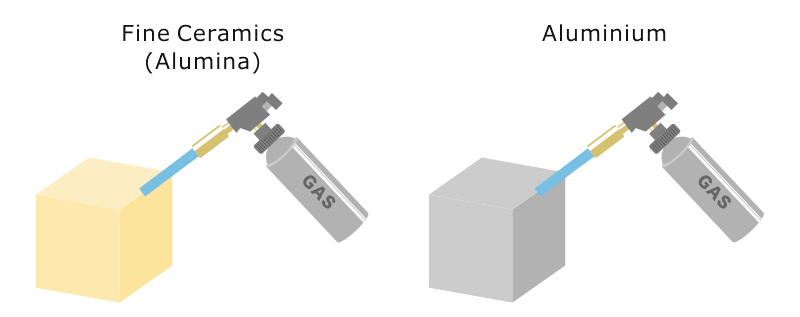The temperature of 150c for 1 hr is okay and then the part degrades over it s lifetime for a x5r or less so for an x7r and almost no degradation over lifetime for a c0g.
Ceramic temperature degradation.
Brittle materials especially ceramics are prone to fracture by sudden changes in temperature.
A sudden change can cause rapid and unequal expansion or contraction that set up tensile stresses in.
Thermal degradation and aging of high temperature piezoelectric ceramics.
Temperatures around 600 c.
From this we know that the part can survive 260c but the manufacturer doesn t want the part to dwell at that temperature for more than 30s.
Thermal degradation of ceramic capacitors thermal degradation analysis is needed to determine if these ceramic capacitors can survive this placement on the pcb.
A common degradation issue in ceramics involves soluble salts.
Water can dissolve or deform ceramics that have been low fired i e.
Ie there is a temperature for every clay body where chemically bound water molecules are removed typically around 600c 700c from the body s makeup.
Piezoelectric materials have numerous applications like high temperature accelerometers pressure flow and ndt transducers acoustic emission ultrasonic cleaning welding high voltage generators medical therapy etc.
Secondly they can start to obtain surface cracks called dozlers over time they.
Ultra high temperature ceramics uhtcs are a class of refractory ceramics that offer excellent stability at temperatures exceeding 2000 c being investigated as possible thermal protection system tps materials coatings for materials subjected to high temperatures and bulk materials for heating elements.
Ceramic capacitor manufacturers have aggressively increased the capacitance of their products.
Concussion grinding cause degradation to the form but not the actual ceramic material.
Therefore to understand the performances of plasma spray ceramic coatings several investigations concerning degradation characteristics including tribological characters and sdhesive strength have been conducted in recent years 3 4.
Ceramics can degrade in many types of ways they can warp over time especially when exposed to high temperatures.
It just makes it into smaller bits.
Broadly speaking uhtcs are borides carbides nitrides and oxides of early.
Also their high temperature corrosion and oxidation properties were investigated in some papers 5.
This combination of high strength and improved toughness has resulted in better performance in structural applications and in appli cations where thermal shock and foreign object damage are important modes of degradation.










